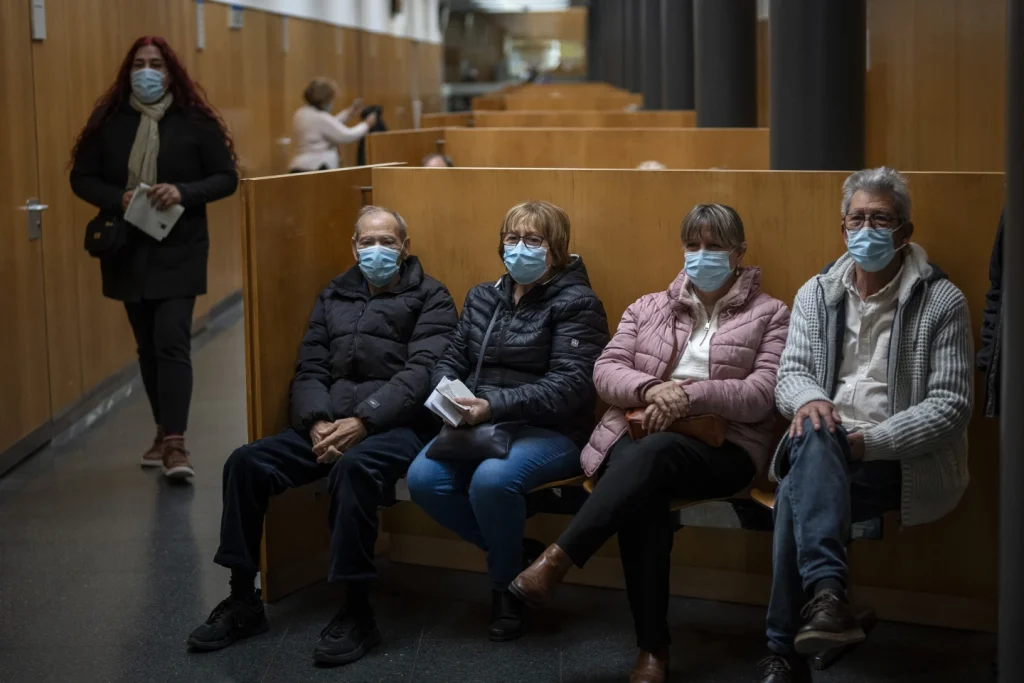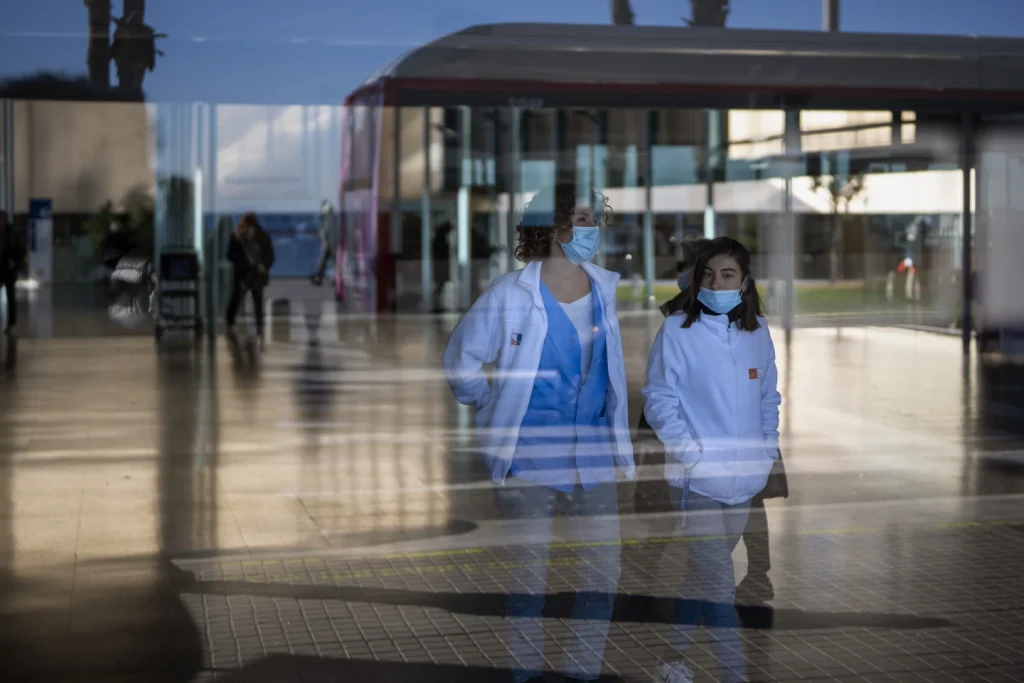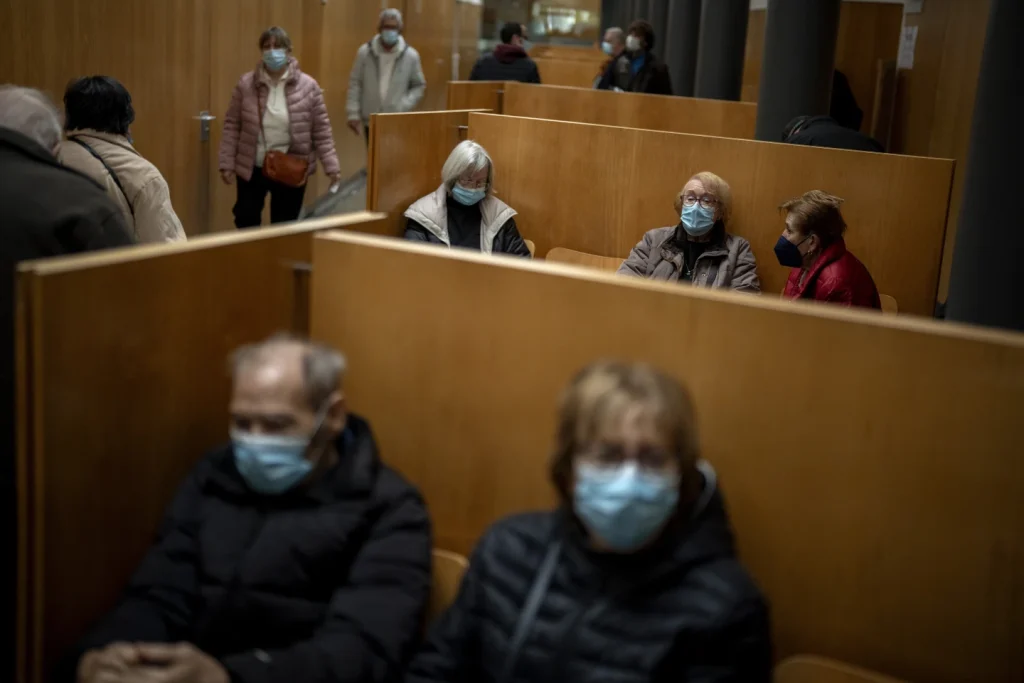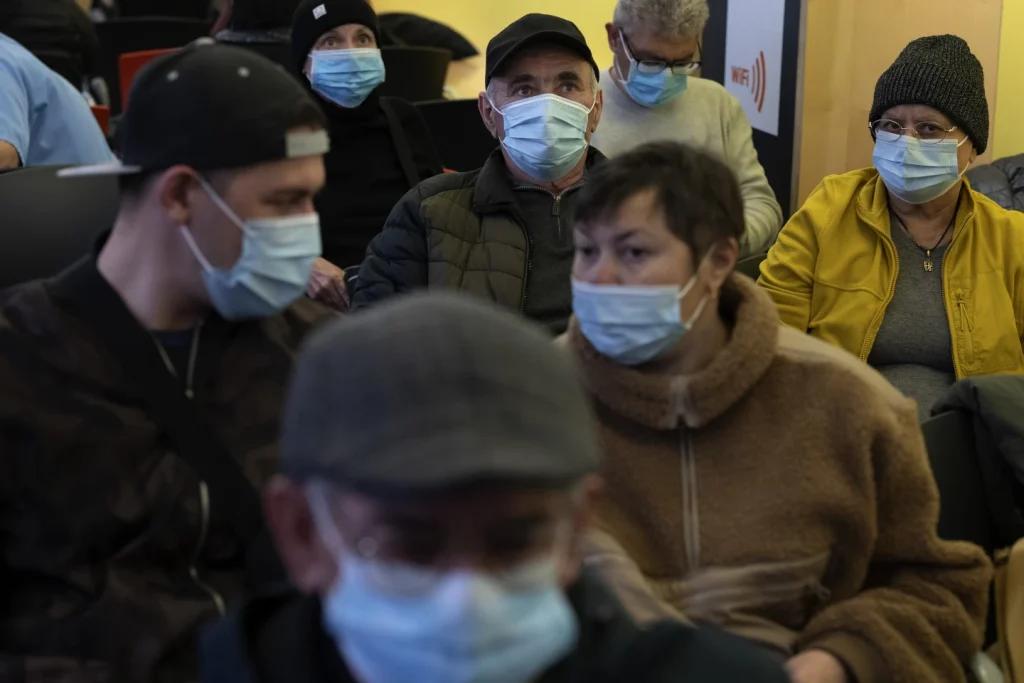The recent announcement by the Health Ministry in Spain regarding the mandatory use of face masks in hospitals and healthcare centers has sparked controversy and debate across the country.
Despite the opposition from the majority of Spain’s autonomous regions, the leftist minority coalition government has decided to implement this measure in response to a surge in respiratory illnesses.
Health Minister Mónica García emphasized the importance of wearing a face mask when entering a health center, and the simplicity of the measure. She stated, “I don’t think it is any drama.
It is a basic and simple measure of the first order.” This decision has raised questions and concerns among the public and healthcare professionals alike.
The debate surrounding the mandatory use of face masks in healthcare settings is multifaceted and complex.
On one hand, proponents argue that it is a necessary precaution to protect both patients and healthcare workers from the spread of respiratory illnesses.
They emphasize the importance of preventing the transmission of infectious diseases within healthcare facilities, where vulnerable individuals are already at a higher risk of contracting illnesses.
On the other hand, opponents of this measure raise concerns about the practicality and potential negative impact of mandatory face mask use.
Some argue that it may create discomfort and communication barriers for patients, particularly those with hearing impairments or cognitive disabilities.
Others question the effectiveness of face masks in preventing the spread of respiratory illnesses, citing conflicting evidence and the need for further research.
Furthermore, the decision to enforce this measure despite opposition from the autonomous regions raises questions about the balance of power between the central government and regional authorities.
It highlights the complexities of governance and decision-making in a decentralized political system, where conflicting interests and priorities must be reconciled.
In light of these debates and considerations, it is crucial to approach the issue of mandatory face mask use in healthcare settings with a balanced and informed perspective.
It is essential to consider the potential benefits and drawbacks of this measure, as well as the implications for patient care and healthcare delivery.

Ultimately, the decision to mandate the use of face masks in hospitals and healthcare centers in Spain reflects the government’s commitment to prioritizing public health and safety.
However, it also underscores the need for ongoing dialogue and collaboration between policymakers, healthcare professionals, and the public to ensure that measures are implemented in a way that is effective, practical, and respectful of individual rights and needs.
As the situation continues to evolve, it is imperative for all stakeholders to engage in constructive and evidence-based discussions to address the challenges and complexities of managing respiratory illnesses in healthcare settings.
By working together, we can strive to find solutions that prioritize the well-being of patients and healthcare workers while respecting the diverse perspectives and concerns surrounding this issue.
The healthcare system in Spain has been facing significant challenges in recent weeks due to a surge in cases of flu, COVID-19, and other respiratory illnesses.
The unprecedented increase in patients requiring medical attention has put immense pressure on hospitals across the country, leading to overcrowded emergency rooms and strained resources.
Healthcare workers have been working tirelessly to provide care for the growing number of patients, often working long hours and facing unprecedented levels of stress and exhaustion.
The situation has prompted the government to implement emergency measures to alleviate the strain on hospitals, including increasing capacity, mobilizing additional medical staff, and implementing stricter public health measures to curb the spread of illnesses.
Despite these efforts, the healthcare system continues to face immense challenges, and the situation remains a cause for concern.
It is crucial for all stakeholders to work together to support the healthcare system and ensure that patients receive the care they need during this critical time.
In response to the recent decision by García’s ministry to impose mandatory mask-wearing measures, it is evident that the issue of public health and safety in the context of the ongoing COVID-19 pandemic continues to be a matter of significant concern and debate.
The decision to enforce mandatory mask use comes on the heels of failed negotiations with regional health authorities, many of whom advocated for the recommendation of mask usage rather than its obligatory nature.
It is important to note that in Spain, regional governments hold the responsibility for healthcare, although intervention by the central government is permissible in cases where it is deemed necessary.
As a result, six regions have already implemented the mandatory mask-wearing measure, leading to widespread usage of masks in public spaces, on public transport, and within healthcare facilities in recent months.
The backdrop against which these developments have unfolded is one marked by a series of transitions in the government’s stance on mask-wearing requirements.
Notably, Spain officially declared an end to the health crisis stemming from the COVID-19 pandemic in July, signaling that the general populace was no longer mandated to wear masks in healthcare and care centers as well as pharmacies.
This declaration came after a gradual easing of mandatory mask-wearing, initially in public spaces and subsequently on public transport.
The impact of the COVID-19 pandemic in Spain has been profound, with the country recording over 14 million cases and approximately 120,000 deaths attributed to the virus.
These staggering figures underscore the severity of the public health crisis that has unfolded over the past two years, necessitating a series of policy responses and interventions aimed at mitigating the spread of the virus and safeguarding the well-being of the population.
In light of these developments, it is crucial to critically examine the rationale behind the decision to enforce mandatory mask-wearing and its implications for public health, individual freedoms, and the broader societal context.

The imposition of such measures raises questions about the balance between personal liberties and collective responsibility, as well as the efficacy of such mandates in curbing the transmission of the virus.
Moreover, the divergent perspectives among regional health authorities regarding the necessity of mandatory mask use highlight the complexities and challenges inherent in managing public health policies at both the regional and national levels.
The discordance in opinions underscores the need for effective communication, collaboration, and consensus-building among stakeholders to ensure a cohesive and coordinated approach to addressing public health crises.
Furthermore, the evolving nature of the government’s directives on mask-wearing requirements underscores the dynamic and ever-changing landscape of the COVID-19 pandemic.
As new variants of the virus emerge and the efficacy of existing preventive measures is continually reassessed, it is imperative for policymakers to adapt their strategies in response to the evolving circumstances, while also ensuring transparency and clarity in their communication with the public.
In conclusion, the decision to enforce mandatory mask-wearing in certain regions of Spain reflects the ongoing challenges and complexities associated with managing the COVID-19 pandemic.

As the country grapples with the enduring impact of the virus, it is essential for policymakers to navigate the delicate balance between public health imperatives and individual freedoms, while fostering collaboration and consensus-building among regional and national authorities.
Ultimately, the efficacy and implications of such measures warrant careful consideration and ongoing evaluation in the pursuit of safeguarding the well-being of the population.
